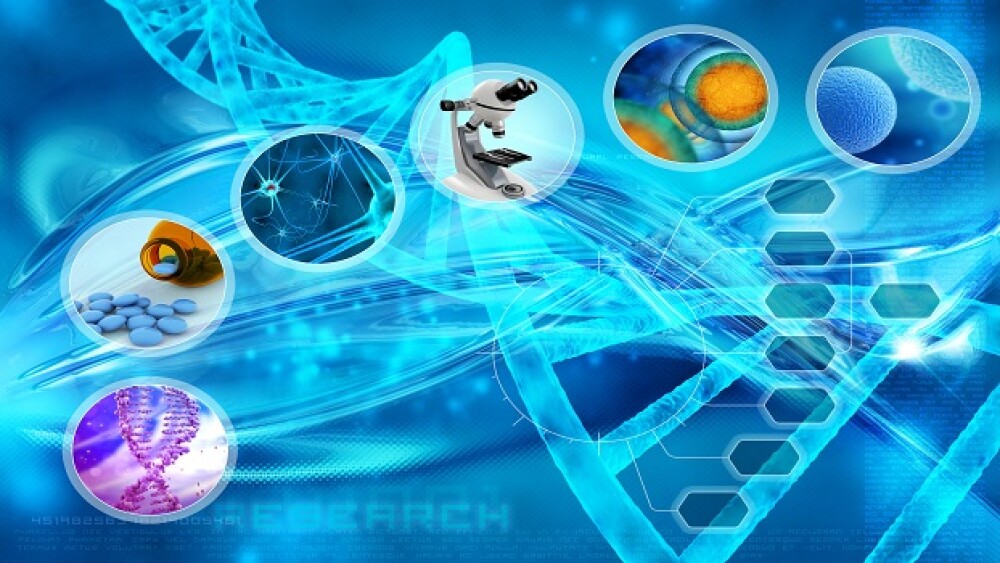Atomwise invented a deep learning artificial intelligence technology for structure-based small molecule drug discovery. Enamine is the world’s largest chemical supplier.
Atomwise, based in San Francisco, and Etamine, headquartered in Kiev, Ukraine, launched an AI-powered virtual drug screening program called 10-to-the-10. It is built on a library of 10 billion compounds and plans to speed the discovery of small molecule drugs for pediatric cancers.
Atomwise invented a deep learning artificial intelligence technology for structure-based small molecule drug discovery. Enamine is the world’s largest chemical supplier.
Atomwise will leverage its AI tech to evaluate the binding of billions of compounds to cancer target proteins, and Enamine will provide support and access to its virtual compound library.
“Many of our partners have successfully identified early drug candidates, including submicromolar hits, by screening only 10 million compounds with our AI virtual screening platform,” stated Abraham Heifets, chief executive officer and co-founder of Atomwise. “We’ve barely scratched the surface of what is possible—imagine what will be found when we screen a chemical library that is a thousand times larger.”
Earlier this month, Atomwise signed a multi-year deal with Eli Lilly and Company to apply Atomwise’s AI in support of Lilly’s preclinical drug discovery operations. They will collaborate on up to 10 drug targets chosen by Lilly.
No financial terms for the Etamine deal were disclosed, but for the Eli Lilly agreement, Atomwise could receive up to $1 million per target in discovery milestones and will be eligible for up to $550 million in possible development and commercial milestones. As part of that deal, Atomwise has the option to develop compounds from the collaboration that Lilly chooses not to advance into the clinic.
Atomwise also has partnership deals with numerous other companies and institutions worldwide, including Charles River Laboratories, AbbVie, Merck, Duke University School of Medicine, Bayer and the Karolinska Institutet, among others.
AI and machine learning are increasingly being used in drug development. In May, AstraZeneca signed a long-term collaboration deal with UK-based BenevolentAI, which will focus on using AI and computational medicine and machine learning to discover and develop new drugs for chronic kidney disease (CKD) and idiopathic pulmonary fibrosis (IPF).
BenevolentAI signed an exclusive license deal in 2016 with Johnson & Johnson’s Janssen Pharmaceutical for several clinical-stage drug candidates. In April, Concerto HealthAI signed a deal with Bristol-Myers Squibb and a few weeks later, with Pfizer. Those two deals will focus on using AI and oncology-specific Real-World Data (RWD) and advanced AI for Real-World Evidence (RWE) generation. The RWD and RWE will be culled from clinical medical practices that participate in the American Society of Clinical Oncology’s Cancer LinQ initiative and others throughout the U.S.
And in March 2019, Oxford BioMedica signed a two-year R&D development collaboration with Microsoft Research. The goal is to improve the yield and quality of next-generation gene therapy vectors—typically viruses—using AI and machine learning.
According to Atomwise, its partners have early preclinical success rates more than twice the industry standard, and average hit rates are reportedly a hundred times greater than with traditional screening methods.
Whether that’s true or it’s dramatically different from the results by other AI-related healthcare companies is unknown. However, today’s announcement is important simply for the size of Enamine’s REAL (readily accessible) virtual compound library of 10 billion molecules.
“In collaboration with Atomwise, we’ve already found a few inhibitors in just one round of screening,” stated Pengda Liu at the University of North Carolina Lineberger Comprehensive Cancer Center, who has utilized Atomwise’s AIMS Awards program. “Expanding the chemical space to 10 billion could be an absolute game-changer for this research.”





